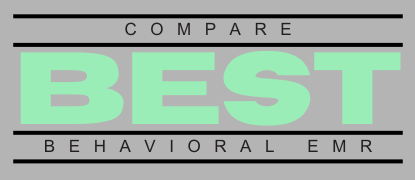With the ongoing digital transformation in healthcare, increased administrative tasks, and an ever-growing need for meticulous documentation, behavioral health practices face a unique set of challenges. A powerful tool for addressing these challenges is the use of behavioral health Electronic Medical Records (EMR) systems. This software not only streamlines practice management and simplifies administrative tasks but also significantly improves the overall quality of patient care.
Understanding Behavioral Health EMR
The Behavioral Health EMR is a dedicated digital platform that consolidates patient medical histories, treatment plans, billing information, and other essential data in one place. This specialized software is designed to meet the specific needs of behavioral health clinicians, including psychiatrists, psychologists, therapists, and counselors.
Key Features of Behavioral Health EMR
- Integrated patient portal: This allows patients to schedule appointments, access their medical records, and communicate with their healthcare providers securely.
- E-prescribing: This feature enables clinicians to send prescriptions directly to pharmacies, improving efficiency and patient safety.
- Documentation tools: These tools assist in the creation of treatment plans, progress notes, and other essential documentation with ease.
- Appointment scheduling: This feature helps manage appointments effectively, reducing no-shows and improving patient flow.
- Billing and revenue cycle management: This integrated feature simplifies billing, insurance claims, and payment processing.
The Impact of Behavioral Health EMR on Practice Management
Implementing a behavioral health EMR system can significantly improve practice management by enhancing efficiency, reducing errors, and improving patient care quality.
Improving Efficiency
With behavioral health EMR, practices can automate a variety of administrative tasks, such as scheduling appointments, sending reminders, and managing billing. This frees up staff time, allowing them to focus more on patient care.
Reducing Errors
The use of EMR can significantly minimize errors linked to manual data entry and miscommunication. With all patient information and treatment plans in one place, the risk of mistakes is considerably reduced.
Enhancing Quality of Care
By providing real-time access to comprehensive patient data, the EMR system allows clinicians to make informed decisions quickly. This leads to better patient outcomes and enhanced quality of care.
Choosing the Right Behavioral Health EMR
Choosing the right EMR system for your practice is crucial. Here are some factors to consider:
- Specialty-specific features: Ensure that the EMR system has features designed specifically for behavioral health practice.
- Scalability: The system should be able to grow with your practice.
- Interoperability: The EMR should be able to integrate with other software in your practice, like billing or scheduling systems.
- Customer support: A reliable customer support system is vital to address any issues or challenges that may arise.
For a more in-depth analysis of your practice’s specific needs, consider a free practice analysis.
Conclusion
Implementing a behavioral health EMR system is a strategic move towards modern, efficient, and high-quality healthcare. It not only simplifies administrative tasks but also empowers clinicians to deliver better patient care. As a behavioral health practice owner or clinician, embracing this digital tool is a step towards improving your operations and enhancing the care you provide.
Are you ready to unlock the benefits of a behavioral health EMR system? Start by understanding your practice’s unique needs and exploring the options available. Let’s make the leap towards better healthcare together.
For more information on how to improve your practice management using EMR, visit this link.
**Meta Description**: Discover how behavioral health EMR can revolutionize your practice management, from enhancing efficiency and reducing errors to improving the quality of patient care. Explore the key features of EMR and the factors to consider when choosing the right system for your practice.
